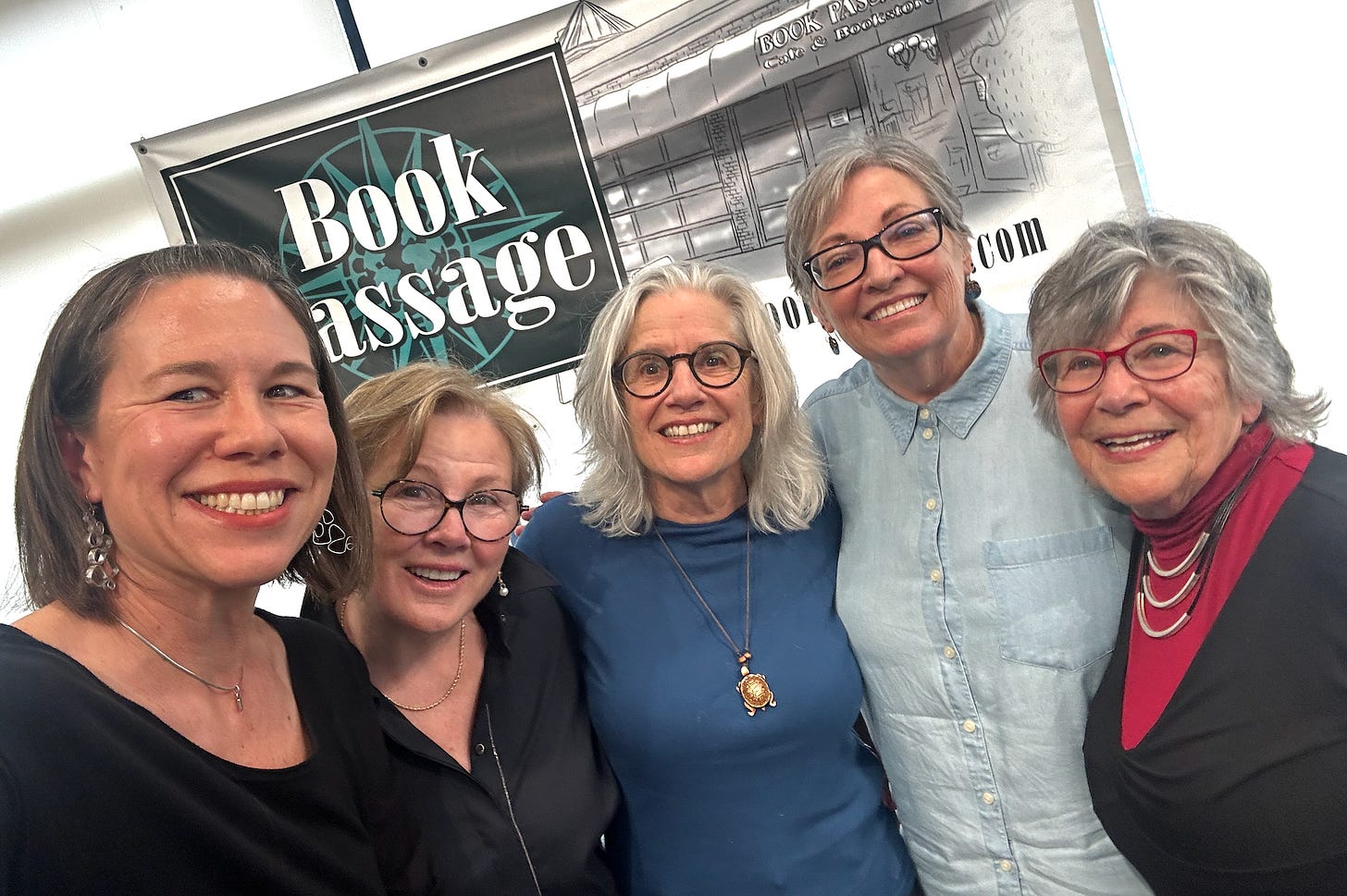Why I Decided to Connect My Authors to One Another
An indie publisher shares how breaking with traditional publishing's siloed treatment of authors has been the most rewarding part of the journey so far
When I started She Writes Press in 2012, I was in a state of disillusion about traditional publishing. I’ve told the story of why I left, but I have never told the story of how one of the foundational decisions I made, to put my authors in touch with one another, was a direct response to that thirteen-year stint.
For nine of those traditional publishing years, I was at Seal Press, where I had a full-blown feminist awakening. The women authors I published there changed my ideology and the entire course of my life. Authors like Jessica Valenti, Julia Serano, Samhita Mukhopadhyay, Courtney Martin, Amanda Marcotte, Rachel Kramer Bussel, Kate Bornstein, Amy Ferris, and Virgie Tovar are among the feminist thinkers who were (and still are) literally changing the culture with their books and their words.
A lot of those Seal Press authors did in fact know each other, or of each other, but not because they published on the same press. Rather, because of the blogosphere. And while not every author was also writing for sites like Feministing, Jezebel, JaneXO, The Toast, and others, there were conferences like BlogHer, and later BinderCon. There are the ones that still exist, too—like AWP and the National Women’s Studies conference.
What I witnessed during this time, both online and in person, was an energy that I imagine a lot of second-wave feminists felt at consciousness-raising parties. Here were interesting, impressive, world-wise, badass women talking and writing and sharing with one another—but also raising each other up. The camaraderie could be felt from how these authors endorsed each other, to how they shared contacts and leads (and sometimes agents), to how they partied together.
Witnessing all this badassery created some cognitive dissonance on my part, however, when the clear directive from the parent companies was to keep authors siloed. There is a distinct lack of transparency in book publishing, probably by design. Publishers don’t want authors to know how much they do—or don’t—spend on publicity and marketing. If you’ve ever had an agent who was reluctant to show you where they’ve shopped your book, it’s a pretty common practice. There’s a legacy of evasiveness, which is self-protective and well cultivated. Authors are often infantilized by publishers, who can hold the mindset (conscious or not) that authors don’t know what they’re talking about and therefore don’t need to be informed, and whose opinions about things like covers, design, and marketing and publicity can (and even should) be railroaded.
I saw all this in my thirteen years, and even engaged in this kind of behavior, I will say unwittingly, because you conform to the behaviors of the cultures you’re a part of. Which is why, when I left Seal Press to start She Writes Press, I wanted things to be different. Different where it came our publishing model and how we acquired and what we valued (the writing) and didn’t (celebrity/author brand). But also different where it came to putting authors in touch.
The community I saw at Seal Press was homegrown by our authors. The feminist blogosphere was a singular, beautiful force. Those conferences we attended pulsed with energy. Putting my authors in touch with one author started in the early days with a Facebook group, and grew over time to seasonal cohort calls and webinars and office hours. We hosted author retreats and our authors started to convene at conferences and book fairs and trade shows. Soon, the cohorts started to self-organize. People volunteered to be cohort leaders, and spin-off smaller groups, like memoir cohorts and a historical fiction cohorts, emerged out of the desire to connect and to share ideas and strategies.
Thirteen years in, the rewards of being a bridge to my authors knowing each other are everywhere. I see authors who published together in the same cohort years ago who are still connected. I’ve witnessed how these groups of women champion one another and show up for each other. And look, in keeping with my value of transparency, I will share that it’s not always been easy on me. I have fantasized about shutting it all down in frustrated moments when my staff is besieged by emails resulting from misinformation that stemmed from an author cohort call. There have been cohorts over the years who’ve stoked each other’s frustration with me, or with the press. With our recent move to The Stable Book Group, which is providing me some space to think about things I want to change and dream into for the future, a colleague and friend, a fellow publisher, suggested I shut down the Facebook group—knowing as she does that it is sometimes a source of pile-ons. In response I said I never will.
What makes communities thrive, whether it be a faith community, a political party, a movement, or a team, is oxygen. It’s giving people space to do what people will do. It’s ensuring that people feel empowered to do community the way they do community. Lately, I’ve been thinking about my dad who passed in 2023, who was a preacher for many years, and founded a church in 2000. And of my mom, who founded and held the sacred space of Pine Manor for nearly three decades. I come from community holders on both sides, and my parents modeled community. Not just how to have one, but how to create and hold space for people to have something they care about. And to turn over the ownership to that community so it’s something that’s truly theirs.
As I stand here at the precipice of She Writes Press 2.0, this is the thing I’m most proud of: the community. How my authors show up for each other. The sisterhood that I am a part of, not the head of.
To put a point on this, yesterday I moderated a panel at Book Passage with four of my authors, a memoir panel—and they were wonderful. During the Q&A, someone asked about how it was that these authors were so seamlessly woven together. The authors shared that they were cohort sisters and how they’d zoomed monthly (or more) throughout their publishing journey. It wasn’t an accident that they were so connected, they shared. They’d carried one another along over these many months.
After the panel, a young man introduced himself as the son of another of our authors in this same cohort who lives on the East Coast. Oh, so you live here? I asked. No, he said, he and his partner were visiting San Francisco, and it was with some degree of effort that they’d made their way to Book Passage in Marin because his mom had said he couldn’t miss it. Her cohort sisters needed all the support they could get—and he promised his mom they’d be two more bodies in the audience. I’m telling you, my heart swelled. This is everything, y’all. In the face of so much challenge and darkness in recent months, this event yesterday was a reminder that we do have each other. We go the distance for each other. The relationships that matter are not transactional, but rather stem from a beautiful human impulse to lift each other up. Let us all keep answering that impulse, especially now.







To say “I love this” doesn’t do it justice. I have been meaning to write an entire article about you and this exact endeavor. I better get on it.
I love this. Connection. Community. Sisterhood. Lifting & supporting & championing SheWrites Authors. So much love & joy in lifting up others. I love you, Brooke.